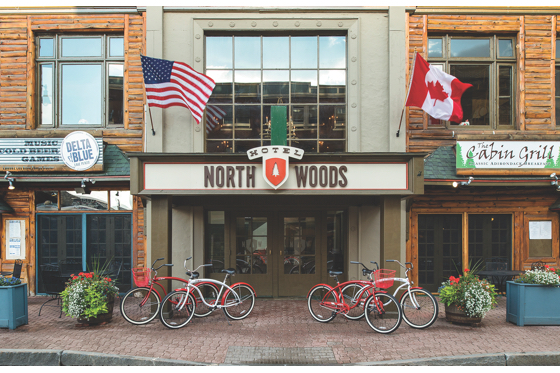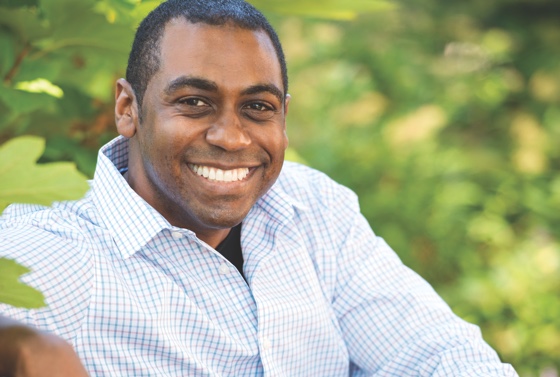When Marriott International’s Julius Robinson talks about growth of the now five-year-old Autograph Collection, he says members tell him that “it’s all about the pipes.” The vice president of the brand with more than 100 hotels open says he is able to recruit staunch independents and even lure new-build developers simply because of the distribution he can more or less guarantee.
“They’re buying the 50 million Marriott Rewards members. They are buying Marriott’s distribution prowess,” Robinson says matter-of-factly. The results shown by Marriott and some of its soft brand competitors: extending shoulder seasons, added weekday contribution and more group business. For Marriott, Autograph delivers the third highest ADR in the system, which its independent members cannot replicate.
The average cost for this business, Robinson says, is from 9% to 10.5% of revenue, which Hersha Hospitality Trust President and COO Neil Shah says is very similar to branded hotel fees. “They might be marginally less than a hard brand, but generally, Autograph and Hilton’s Curio, for example, are very similarly priced to any of the other brands in those families,” Shah says. “Where they’re very different, though, is that they allow a lot of flexibility. But we look at it more as a branded solution and not one we think is necessarily the best solution for institutional owners.”
Robinson counters by relaying stories from owners who say they are increasing the multiples on their real estate to the point where asset sales make the most sense. In fact, Robinson estimates that some 40% of the Autograph portfolio has changed hands during the life of the brand. “We took a look at 12 hotels over a three-year time period that they were in the Autograph Collection – none of them new-builds,” Robinson says. “RevPAR grew anywhere from 7% to 32%, with the median being about a 19.5% increase in RevPAR over those three years.”
(For the complete January-February HOTELS story on soft brands, click here.)

Soft brand members are also buying clout. The big brands negotiate better fee structures with OTAs and provide purchasing efficiencies. As a result of all the benefits, Robinson says the Autograph continues to grow by 20% to 25% a year with no end in sight. And, perhaps, therein lies the rub.
Will collections like Autograph, Ascend, Curio and the like become diluted and lose the affection of independently minded travelers, or will their strong pipes continue to deliver the nights the brand-averse owners and operators require to survive in an increasingly complicated distribution landscape?
!["So far, the likes of Autograph and Curio have been very selective and there hasn’t been this excessive focus on unit growth. They are seeking out owners and operators that are hoteliers and not just institutions, and I just hope it stays that way. I get concerned with them trying to get into lots of markets [around the U.S.] because a lot of markets probably aren’t great fits.” -- Neil Shah, Hersha Hospitality](https://www.hotelsmag.com/wp-content/uploads/2021/06/9063b08d7231077fd54191fc5704862a162387332560ca572ddc7b9.jpg)
“If the global brand complexes want to grow their soft brands significantly, they’ll lose their differentiating characteristics,” states Shah, who offers an informed and unique perspective because his portfolio includes properties operating as strict independents, some under Autograph, Curio and traditional consortium like The Leading Hotels of the World, as well as Hersha’s own Independent Collection. “So far, the likes of Autograph and Curio have been very selective and there hasn’t been this excessive focus on unit growth. They are seeking out owners and operators that are hoteliers and not just institutions, and I just hope it stays that way. I get concerned with them trying to get into lots of markets [around the U.S.] because a lot of markets probably aren’t great fits.”
Easing Shah’s concern is Claus Sedlinger, who says his Berlin-based Design Hotels brand (of which Starwood has been a majority but passive investor) is very selective. “We get more than 300 applications every year and we are maybe taking five,” he says. “For the last 10 years we were growing 18 to 20 hotels per year.”
What sets Design Hotels apart, Sedlinger believes, is criteria to attract a likeminded group of customers as part of its selection process. “It unites the owners and why we call them ‘originals,’” he says.
Another question surrounds impact. Will hard-branded hotels start to question their higher fees when one of their brand’s collection hotels is nearby and potentially cannibalizes the revenue stream? Indirectly, Robinson says Autograph has lost but three hotels during its first five years.

What, where next?
So as soft brands start to mature, how does the story evolve? Naturally, by creating new slices to the collection pie. Most of the soft brands play in the upper-upscale and luxury spaces, so why not create 3-star and 3-star-plus soft brands, as for the moment Choice’s Ascend Hotel Collection (already with about 150 open and another 20 to 30 in its pipeline) has most of that space to itself? Others, like Best Western’s Premier, are still in the early stages of development with only six hotels open at press time.
“I think you’re going to start to see versions of Autograph in the 3-star category,” Robinson says. “Maybe you’ll see a version of Autograph in the extended-stay category as there are some other aspects of the business that I don’t think soft brands have quite infiltrated, and I think they will.”
Many of the collection brand leaders also point to an increase in new-build activity with owners wanting to maintain an indie identity yet recognizing the need to connect to a marketing engine – and in some cases to get institutional financing to move the project forward. “The popularity of soft branding will continue to influence new-build hotels,” says Dianna Vaughan, global head, Curio – A Collection by Hilton.
Marriott’s Robinson says half of Autograph’s openings in 2015 were new-builds and that half of its current pipeline are new-builds, as well. A representative for Choice says they are seeing second-generation hotelier families (who may already franchise some traditionally branded hotels with Choice doing Ascend projects as new construction or historic rehabs.
Perhaps flying in the face of Shah’s concern about the collections getting too big, Robinson says Marriott is finding new growth in secondary markets. “We have some unique hotels in places like Portland, Maine, and Cleveland, Ohio,” he boasts.
Then there is the global story for these brands. “The American brands trying to get into Europe have all bumped into a very difficult task because they have only been able to brand new builds or major renovations,” says Ted Teng, CEO of The Leading Hotels of the World, which, while based in New York City, has its roots and portfolio strength in Europe.
With Europe as a stronghold for traditional consortia, Preferred Hotels and Resorts President Lindsey Ueberroth says she would not be surprised if there is consolidation among her peer group. “It will get harder and harder for the regional consortia to sustain their performance,” she says. “So I could see some consolidation in certain parts of the world to add value to members in certain pockets.”

